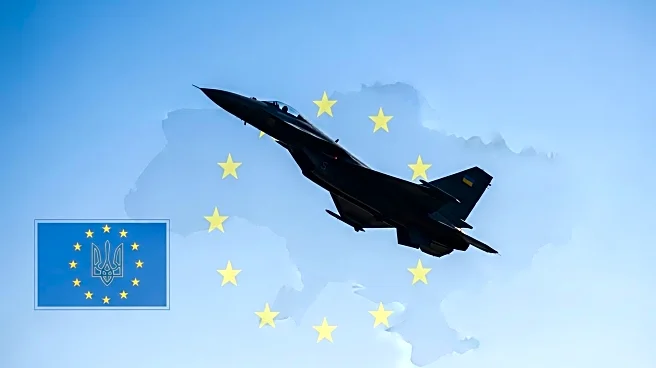What's Happening?
Ukraine is actively pursuing a multibillion-dollar arms buildup funded by European nations as a strategic move to ensure its long-term security. This initiative comes in response to the drying up of American assistance and the uncertainty surrounding Western security guarantees. The plan involves a NATO-backed procurement system that channels European funds into purchasing U.S. weapons, with a particular focus on acquiring Patriot air-defense systems. This system aims to replace U.S. arms donations that have been halted by President Trump and to streamline future weapon deliveries to Ukraine. A recent announcement highlighted the first sale of cruise missiles and GPS navigation kits valued at $825 million.
Why It's Important?
The arms buildup is significant as it represents Ukraine's strategy to bolster its defense capabilities independently of U.S. support. This move could shift the balance of military power in the region and deter further Russian aggression. The focus on acquiring advanced U.S. weaponry, such as Patriot systems, underscores Ukraine's intent to enhance its air defense capabilities. This development also highlights the growing role of European nations in supporting Ukraine, potentially leading to a more unified European defense strategy. The economic implications are substantial, with European funds being redirected towards U.S. defense manufacturers, potentially affecting transatlantic trade dynamics.
What's Next?
Ukraine's pursuit of a robust defense system may lead to increased tensions with Russia, which could respond with heightened military or diplomatic actions. The success of this procurement system could encourage other nations to adopt similar strategies, potentially altering global arms trade patterns. European nations may face internal debates over the allocation of funds for foreign military aid, impacting domestic politics. Additionally, the effectiveness of the new defense systems in Ukraine will be closely monitored, influencing future military procurement decisions by other countries.









